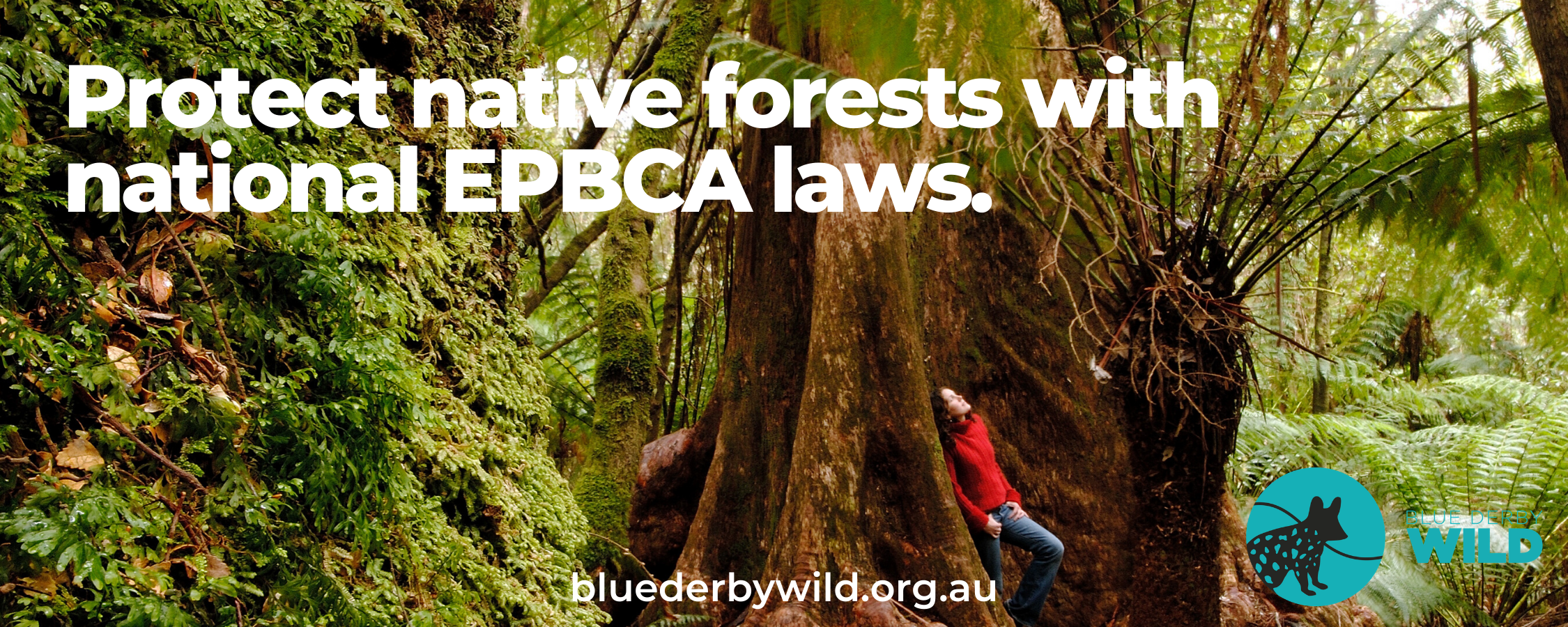Protect our native forests with the EPBC Act.
Sussan Ley

The Environment Protection Biodiversity and Conservation Act (EPBCA) is the nation's most important law governing how our natural world, wildlife and precious places are managed, and it is undergoing a 10 yearly review and update. Currently native forest logging is exempt from the EPBCA meaning that Rare, Threatened and Endangered species such as the Tasmanian devil, Tasmanian wedge tailed eagle and Eastern quoll are still having their habitat logged.
In an agreement made in 1997 it was decided that each state would regulate their native forest logging operations under Regional Forest Agreements (RFA). The RFA system allows the logging of places of unique high conservation and biological value because our state forests and timber reserves are exempt from the EPBCA.
As part of the 10 yearly review we are calling on the Hon Sussan Ley, Minister for the Environment, to update the EPBC Act and abolish the RFA system so that our native forests and the wildlife within them get the protection they deserve. Our forests are worth more standing as carbon banks, biodiversity arks and watersheds. As well as places we should all be able to go.
With the 10 yearly review of the EPBCA there is the urgent opportunity to fix the environmentally destructive practices permitted in our native forests under the state based RFA regime.
To:
Sussan Ley
From:
[Your Name]
Dear Minister Ley,
With the 10 yearly review of the Environmental Protection Biodiversity Conservation Act (EPBCA) there is the urgent opportunity to fix the environmentally destructive logging practices permitted in our native forests under the state based Regional Forest Agreements (RFA).
As federal Minister for the Environment overseeing the review of our nation's most important environmental laws, I ask you to abolish the RFA system and bring the management of our nations native forests under the EPBC Act.
In this time of climate crisis, and the catastrophic loss of our native forests and forest dependent wildlife from the 2019/20 fires, we need to be protecting what forests we have left. Our forests are worth more standing as carbon banks, biodiversity arks, watersheds and places the community can go to reconnect with our landscapes and wild places, and to connect with nature and our wild places.
